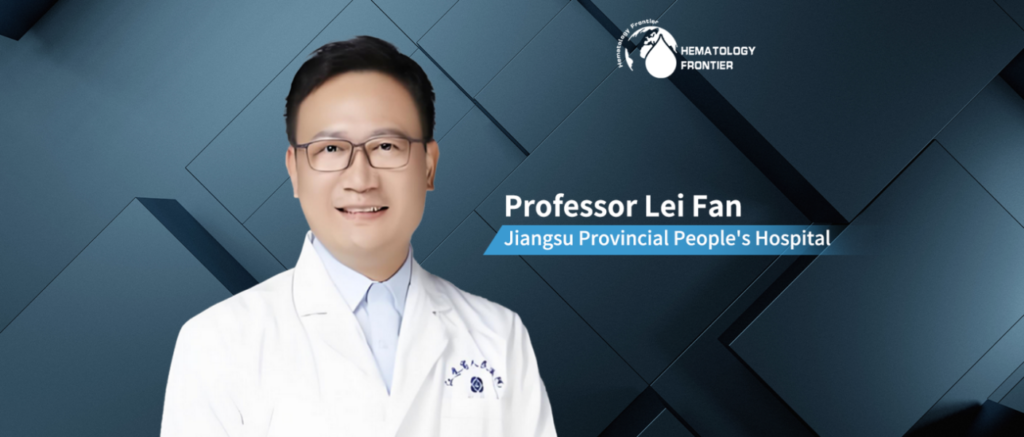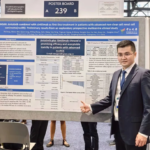
Editor's Note: Richter's transformation (RT), a complication of chronic lymphocytic leukemia (CLL), poses significant diagnostic and therapeutic challenges. At the "2024 Nanjing Lymphoma Forum," Professor Lei Fan from Jiangsu Provincial People's Hospital delivered an academic report titled "Research Progress in Richter's Transformation," covering the latest advancements in its definition, characteristics, molecular mechanisms, and treatment progress. Hematology Frontier had the privilege of interviewing Professor Fan, discussing the significance of the Nanjing Lymphoma Forum and his outlook on the diagnosis and treatment of Richter's transformation.Hematology Frontier: The 2024 Nanjing Lymphoma Forum has arrived as scheduled. As one of the executive chairs, could you introduce this year’s meeting arrangements and highlight content?
Professor Lei Fan: Thank you to all the experts and colleagues for their support. The 22nd Nanjing Lymphoma Forum has arrived as scheduled. Every May, Jiangsu Provincial People’s Hospital (First Affiliated Hospital of Nanjing Medical University) hosts the Nanjing Lymphoma Forum. This forum is a specialized academic event focused on lymphoma, chronic lymphocytic leukemia, and related diseases and tumors of the lymphatic system.
Having been held consecutively for 22 years, this year’s forum primarily focuses on lymphatic system tumors. The main venue hosts keynote speeches covering significant progress in lymphoma research both domestically and internationally over the past year, along with notable contributions from various institutions. Additionally, we have organized sub-sessions dedicated to specific disease areas, such as aggressive B-cell lymphoma, indolent B-cell lymphoma, T and NK-cell lymphomas, cell therapy and transplantation, nursing, elderly lymphoma, experimental hematology, and cutting-edge technology. These specialized sessions allow for more focused and in-depth discussions, benefiting professionals in related fields. As a continuing education course with significant influence in the field of lymphoma, the Nanjing Lymphoma Forum plays a vital role in improving the diagnostic and treatment standards of lymphoma in China.
Hematology Frontier: What are the current areas of interest and research directions in the treatment strategies for Richter’s transformation? What are your views and prospects on new targeted drugs and immunotherapies?
Professor Lei Fan: Richter’s transformation refers to the development of aggressive lymphoma in patients with chronic lymphocytic leukemia (CLL), most commonly transforming into diffuse large B-cell lymphoma (DLBCL). Clinical and research data suggest that once Richter’s transformation occurs, the prognosis is poor, with overall survival typically not exceeding one year. Therefore, improving treatment for these patients is urgently needed.
Historically, treatment methods have primarily involved chemoimmunotherapy. However, various new drugs are gradually entering clinical practice, such as Bruton tyrosine kinase inhibitors (BTKi) and B-cell lymphoma-2 (BCL-2) inhibitors. The current progress suggests that combining traditional chemoimmunotherapy with small molecule pathway inhibitors, including BTKi and BCL-2 inhibitors, can further improve patient survival.
Additionally, novel treatment approaches are rapidly developing and approaching clinical application. For instance, bispecific antibodies targeting CD3×CD19 and CD3×CD20 are being introduced into clinical trials. Preliminary, small-scale, and short-term follow-up data indicate response rates around 50%, with complete remission rates between 20% and 30%. Combining different targeted drugs may further enhance efficacy.
CAR-T cell therapy is another potentially effective treatment. International data show that using CD19 CAR-T cells to treat Richter’s transformation patients achieves response rates over 60%, with complete remission rates exceeding 40%. However, regardless of the targeted treatment used, relapse rates remain high even after achieving deep remissions. Therefore, for patients who achieve deep remissions, we recommend consolidating with allogeneic hematopoietic stem cell transplantation with reduced-intensity conditioning to extend survival and reduce relapse rates.


